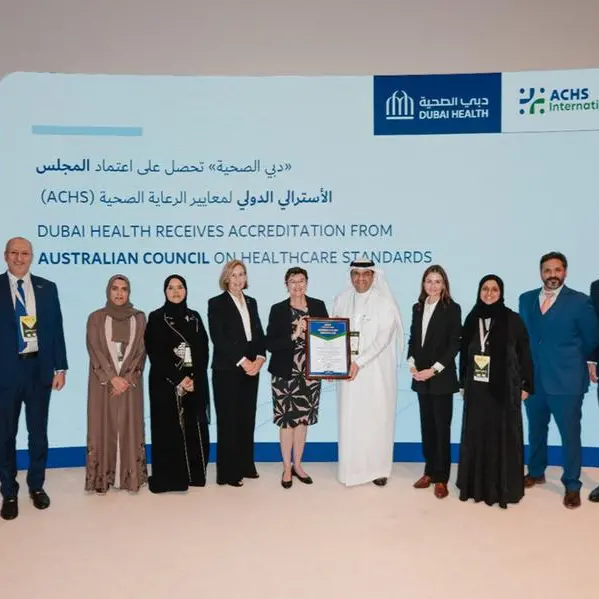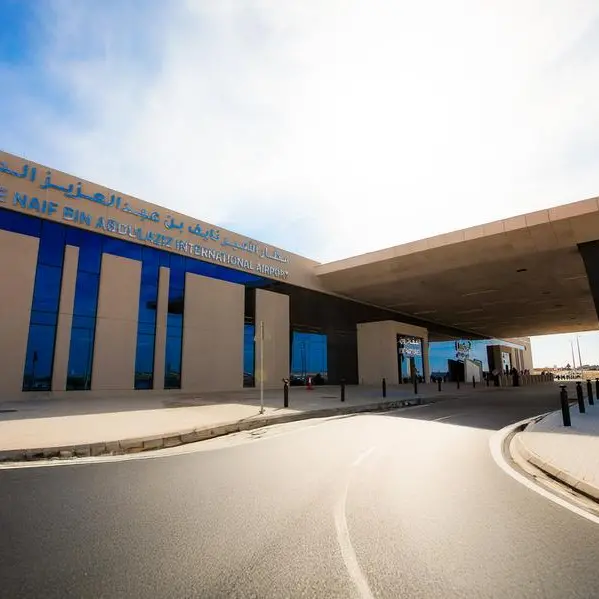PHOTO
Over 350 delegates attend the three-day global event hosted by American University of Ras Al Khaimah (AURAK)
Ras Al Khaimah, UAE: Over 60 higher education leaders stressed the need for innovation in elevating the quality of education in the Middle East at the ‘QS Higher Ed Summit: Middle East’ hosted by the American University of Ras Al Khaimah (AURAK) from 27-29 February, 2024.
Organized by AURAK and QS (Quacquarelli Symonds), global higher education analyst and compiler of the QS World University Rankings, the three-day event addressed issues related to the theme “Cultures of Innovation: Elevating quality education for a thriving Middle East”. Over 350 delegates from the region and across the globe attended the event.
The summit assembled leaders from academia, industry and government to explore how universities can embed and instill cultures of innovation sustainably and creatively to enhance the quality of education in the region.
The opening session was attended by HE Sheikh Saqr Bin Saud Al Qasimi and HE Dr Ahmad Belhoul Al Falasi, Minister of Education for UAE.
Delivering the keynote address, HE Al Falasi hailed the UAE’s education strategy that is based on four main pillars: quality, innovation, relevance to labor market and federal efficiency, and added that the success of the strategy was reflected in the tremendous growth and advancement of universities across the country. He stressed the need for international accreditations and scholarship programs for elevating the levels of education.
HE Al Falasi referred to the culture of innovation as an integral part of UAE’s vision. He remarked that innovation requires inspiration, and this was reflected in the UAE’s ambitious space program which has planned many space missions. He linked these developments to the growing strides made by the UAE in the field of education, by encouraging inquisitiveness.
In his welcome address, Dr. David A. Schmidt – President of AURAK, said: “We are honored to host this gathering of educators from across the globe in the spirit of collaboration and innovation, united by a shared commitment to advancing the frontiers of education and continually shaping the future of higher learning. As educators, the responsibility is great and the rewards are immeasurable. Tasked with empowering the next generation of leaders, thinkers, and creators, our mission at this summit is to critically examine our practices, methodologies, and the impact we have on societies worldwide.”
Addressing the gathering, QS President Nunzio Quacquarelli said: "We are grateful to the American University of Ras Al Khaimah for hosting this year's QS Higher Ed Summit: Middle East. With AURAK's support, we are bringing together university leaders and policymakers from the region and beyond, to discuss how quality education drives innovation and growth in the Middle East."
Quacquarelli added: "With its state-of-the-art campus and its focus on innovation, technology and intercultural education, AURAK provides the perfect environment for the constructive debates, knowledge sharing, networking and collaboration opportunities that we are proud to enable and facilitate at this prestigious Summit."
A number of sessions on crucial topics and panel discussions involving key experts were held over two days.
Heads of five major universities participated in a panel discussion on ‘State of Higher Ed in the Middle East’ analyzed how the sector had developed impressively, driven by innovation, and suggested ways to enhance the quality of the education provided, especially in areas of research and impact.
Another panel focused on digital transformation, leading to faculty and students adapting and embracing technology in the classroom and touched on generative AI, and what should universities do to make sure that technology enhances and does not compromise the quality of education and assessments.
R&D spending in the region was the subject of another panel, in which participants stressed that a strong local research environment can contribute to innovation and economic growth for the countries of the region.
The summit also deliberated on the role of the region’s universities in supporting the Sustainable Development Goals, and offered pragmatic, long-term solutions, drawing inspiration from other success stories, while taking into consideration the common challenges.
High on the summit’s agenda was the need to rethink and reevaluate how university students could be best equipped with relevant skills and resilience for an evolving job market and how universities can ensure that their curriculums include real-world application of skills.
The summit also shed light on the Middle East region’s transformation from being a student source region into a destination country for international students, with major international universities having set up branch campuses in the region, contributing to an ever more diverse student body.
Among the other interesting items on the agenda was an interesting Fireside Chat with Prof Dr. Mohamed Yousif Baniyas - Director, Commission for Academic Accreditation (CAA), Ministry of Education, United Arab Emirates, who provided glimpses into future plans for higher education in the UAE.
Among the galaxy of speakers were the following: Prof Omar Al-Jarrah Khalid El-Salem, Vice President for planning and Development, Arab Open Jordan University of Science & Technology; Prof Thafer Assaraira, President, Accreditation and Quality Assurance, Commission for Higher Education Institutions – Jordan; Prof Randa Mahmoud Rezk, President, Arab Network for Universities of Social Responsibility (ANUSR); Prof Thafer Assaraira, President, Accreditation and Quality Assurance, Commission for Higher Education Institutions – Jordan; Dr Steven Reissig, Executive Director, Ras Al Khaimah Department of Knowledge; Prof Khaled Al-Kattan, Vice President, Alfaisal University; Malakeh El Haj, Vice President, Knowledge and Innovation, Abdulla Al Ghurair Foundation; Dr Riad Sakr, Vice President for Administrative Affairs, American University of Science and Technology-AUST; Dr Nazih Khaddaj Mallat, Vice President, Al Ain University (UAE); Carl Manlan, Vice President, Inclusive Impact & Sustainability, Central & Eastern Europe Middle East and Africa, Visa; Prof Ghassan Aouad, Chancellor, Abu Dhabi University; Dr Karim Seghir, Chancellor, Ajman University; Dr Vidya Yeravdekar, Pro Chancellor, Symbiosis International University; Dr Nader M. Ghazal, Educator, MIT Certified professional in Al & DX, Former Education Minister Advisor, Khalifa University; and Dr Khaled Balawafi, Associate Professor in Artificial Intelligence, AURAK.
About QS
QS Quacquarelli Symonds is the world’s leading provider of services, analytics, and insight to the global higher education sector, whose mission is to empower motivated people anywhere in the world to fulfill their potential through educational achievement, international mobility, and career development.
The QS World University Rankings portfolio, inaugurated in 2004, is the world’s most popular source of comparative data about university performance.
Their flagship website, www.TopUniversities.com – the home of their Rankings – was viewed 147 million times in 2022, and over 124,000 media clippings pertaining to, or mentioning, QS were published by media outlets across the world in 2023.
About AURAK
Established in 2009, the American University of Ras Al Khaimah (AURAK) is a public, non-profit, independent, coeducation institution of higher education which delivers an integrated American-style undergraduate and graduate education with a strong focus on the local indigenous culture. AURAK is officially licensed by the UAE Ministry of Education to award degrees/qualifications in higher education.
AURAK is accredited by the Southern Association of Colleges and Schools Commission on Colleges (SACSCOC) to award baccalaureate and master’s degrees. The University has also earned international accreditation from the Quality Assurance Agency (QAA), the UK’s quality body for higher education. Offering 24 higher education programs across three distinctive Schools, the university is home to nearly 1,300 students from 45 nationalities and supports a network of more than 1,315 alumni. The 1.3 million-square-foot campus in Ras Al Khaimah features cutting-edge technologies, including 50 state-of-the-art labs, a mix of traditional and innovative learning spaces, an onsite sports complex, and a modern library.




















